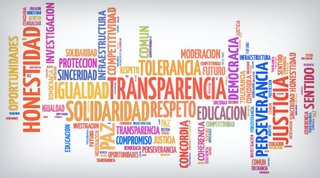TERAPIA DEL LIMÓN CONGELADO PARA COMBATIR TUMORES MALIGNOS

Con un aumento en los informes de medios de comunicación más importantes de discutir los muchos beneficios de salud de las distintas frutas y verduras y de cómo juegan una parte en la lucha contra la enfermedad, es posible que ya han oído decir que el limón cura el cáncer. Aunque esto no es completamente objetiva, ha habido varios estudios que pretenden mostrar una fuerte base en el uso de los limones para el tratamiento del cáncer. También debe tenerse en cuenta que hay informes contradictorios detallando que, mientras que los limones y otras frutas cítricas contienen propiedades que combaten el cáncer, exactamente qué tan efectivos son en contra de determinados tipos de cáncer aún no se ha determinado con precisión.
BENEFICIOS PARA LA SALUD DE LOS LIMONES PARA EL CÁNCER
Además de la Vitamina C que se encuentra en el jugo de limón, que ya es muy conocido alternativa de tratamiento para el cáncer en su propio derecho, la cáscara del limón también ofrece muchos beneficios para la salud, uno de los más importante es que la cáscara de limón puede ayudar a erradicar las toxinas en su cuerpo. Esta puede ser la razón de limones para el cáncer están siendo estudiados y se promociona como un gran remedio.
La conexión entre el cáncer y los limones no es algo nuevo; durante décadas, los científicos se han preguntado, "Es el limón un asesino de cáncer?" y se han desarrollado numerosos estudios para determinar su validez.
Los estudios han revelado que el extracto de limón con éxito puede destruir las células malignas en una amplia variedad de cánceres, incluyendo cáncer de mama, cáncer de colon y cáncer de pulmón. Varios estudios de investigación también hacer la afirmación de que los limones puede destruir el cáncer de forma mucho más efectiva que la quimioterapia, y en un más seguro y de manera más saludable. Además, los estudios también muestran que el extracto de limón terapia sólo afecta a las células malignas, dejando las células sanas intactas.
BENEFICIOS ADICIONALES PARA LA SALUD DE LOS LIMONES INCLUYEN:
Es antibacteriano
Es antivirales
Ayuda en la digestión
Puede ser utilizado para tratar el acné
Ayuda a regular la presión arterial
Pelea contra los parásitos y gusanos
Posee cualidades antidepresivas
Ayuda a reducir el estrés y la ansiedad
Natural lemon extract is cytotoxic to breast cancer cells
(NaturalNews) A new study has shown for the first time how limonoids, natural compounds present in lemons and other citrus fruit, impede both ER+ and ER- breast cancer cell growth. This sheds new light on the importance of citrus fruit for breast cancer prevention and supports past studies which showed fruit consumption may lower breast cancer risk.
Limonoids show cytotoxic and anti-aromatase effects
For this study, 14 kilograms of dried lemon seeds were powdered and defatted. Nine different limonoids were extracted from the seeds. Seven showed significant cytotoxicity against ER+ breast cancer cells, while four showed cytotoxicity against ER- cells (decreasing growth/viability by as much as 44 percent). Each limonoid was also tested for its ability to induce programmed cell death of the cancer cells (via caspase-7 activation), and one of the most potent was found to be limonin glucoside - which is by far the most abundant limonoid in citrus juices.
The limonoids were also tested for their ability to inhibit aromatase, which is key in limiting the estrogen that ER+ cells can use for growth. All but one of the limonoids proved to be natural aromatase inhibitors, and again, limonin glucoside was at the forefront as the most potent of them all. Thus, limonoids are not only directly toxic to both ER+ and ER- breast cancer cells, but they also work to deprive ER+ cells of the estrogen needed for growth.
Preventing breast cancer is not the only reason to consume citrus limonoids, though. In the lab, limonoids have shown cytotoxicity to colon cancer, pancreatic cancer, liver cancer, neuroblastoma, leukemia, and others. This opens an important question: How much citrus fruit must we consume for meaningful protection from cancer?
Citrus fruit for cancer prevention - How much is needed?
A recent case-control study out of Europe showed that consuming four or more 150-gram portions per week of citrus fruit decreased the risks of throat cancer by 58 percent, oral/pharyngeal cancer by 53 percent, stomach cancer by 31 percent, and colorectal cancer by 18 percent. This study did not find a protective effect of citrus against breast cancer, but a recent American study did show that women consuming about 75 grams daily of grapefruit (fruit or juice) saw a 22 percent reduction in breast cancer risk if they had never used hormone replacement therapy. It is noteworthy that the protective level of citrus consumption was nearly identical in both these studies (525-600 grams per week) and could be interpreted as a minimum intake level for meaningful cancer protection. However, it's also important to know the best sources of limonoids if they are key to citrus fruit's anti-cancer properties.
Sources of citrus limonoids - Oranges are best
While the limonoids in the latest study above were taken from lemon seeds, they are also found in the peel, pulp and juice of all citrus fruits. Citrus juices contain approximately 90 to 300 mg per liter of limonoid glucosides (orange juice: 300 mg/l, grapefruit juice: 200 mg/l, lemon or lime juice: 90 mg/l). Citrus pulp and peel contain up to 500mg/kg of limonoids, so if you freshly squeeze your juice, be sure to include as much pulp as possible. Citrus seeds can contain up to two percent by weight of limonoids, with grapefruit seeds being the richest source.
Taken together, these recent studies suggest that women wanting to reduce breast cancer risk should consume at least 75 grams daily of citrus fruit or juice as part of a well-balanced, healthy lifestyle, and that further benefit may be obtained by concentrating on limonoid-rich orange and grapefruit as whole fruit, or pulp-rich juices.
Sources for this article include:
http://www.ncbi.nlm.nih.gov/pubmed/23117440
http://www.ncbi.nlm.nih.gov/pubmed/19856118
http://www.ncbi.nlm.nih.gov/pubmed/18026192
http://www.ncbi.nlm.nih.gov/pubmed/17892257
About the author:
Ethan Evers is author of the award-winning medical thriller "The Eden Prescription," in which cutting-edge researchers perfect an effective, all-natural treatment for cancer, only to be hunted down by pharmaceutical interests which will stop at nothing to protect their $80 billion cancer drug cash machine. The Eden Prescription is based on the latest science and draws on real historical events stretching back to the beginning of the "War on Cancer." Ethan has a PhD in Applied Science.
Learn more: http://www.naturalnews.com/038235_lemon_extract_breast_cancer_tumor_cells.html#ixzz3Zec9oeGl





















No hay comentarios :
Publicar un comentario